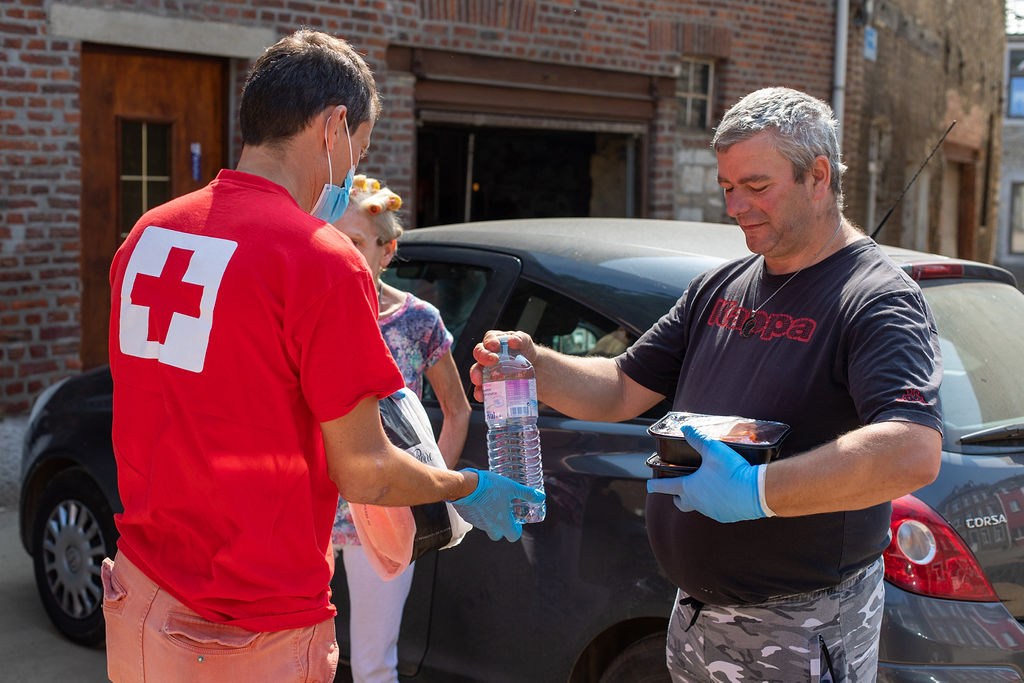Two and a half months after the fatal floods, the need for food aid in the affected municipalities remains very high, according to the Belgian Red Cross working in Wallonia.
They’ve been distributing around 12,000 meals a day from 22 different reception centres in the disaster area, in coordination with Belgium’s ministry of Defence.
“The involvement of the Belgian Red Cross has been gradually increasing since last week,” they reported on Tuesday.
“Food aid is one of the five priorities of our action plan to support the flood victims, alongside direct financial aid, the financing of local projects, aid via schools and accommodation centres.”
They’re using soldiers to help with the distribution of meals, but say they need 80 more volunteers in order to meet the needs.
“Many people were mobilized as crisis volunteers at the beginning of the disaster,” explained spokesperson Nancy Ferroni.
“This summer, we had many people registered via our internet platform. But since the beginning of September, as we expected, many have gone back to work or school and are no longer available.”
The loss of that help has been felt.
In addition to the 22 reception centres for aid, the organisation says it needs help delivering meals to the several dozen disaster victims who are unable to come to those points.
“Everyone is welcome, even if we want to give priority to regularity, continuity and proximity: that is to say, volunteers who can mobilise at least once a week or with a certain recurrence,” Ferroni said.
People who would like to register as volunteers can do so directly online via the website or by calling the Red Cross’ freephone number 105.
The 22 food distribution points are located in Angleur (which has 3 of them), Chênée (3), Chaudfontaine (3), Trooz (3), Fraipont, Nessonvaux, Pepinster, Verviers, Ensival, Theux, Esneux, Limbourg and Rochefort (2).
The reception points in Verviers and Limbourg also offer showers and laundry services.
In most of these places, two meals are distributed per day consisting of a sandwich meal and a hot meal, either at noon or in the evening.
In Theux, Limbourg and Chaudfontaine, the Red Cross uses local traders (butchers, caterers, etc.) to prepare the meals. This will also be the case in Trooz from Friday, and is a trend that the Red Cross seeks to develop further.
Their action plan for the flood response is planned to last until April 2022, ensuring that needs are covered during the winter.

